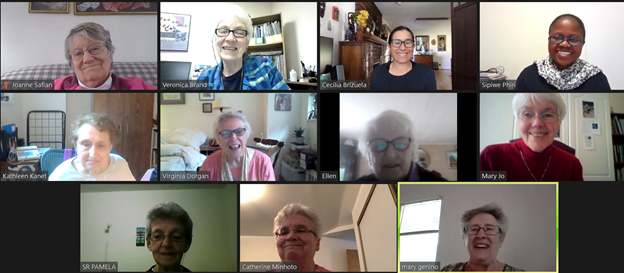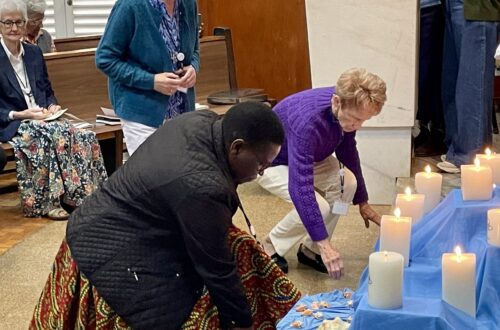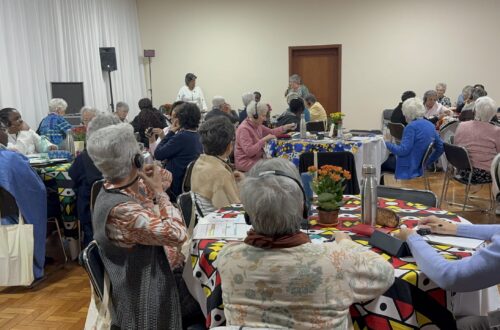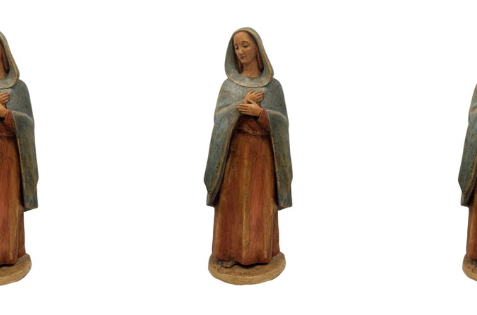The United Nations Commission on the Status of Women, held annually, took place this year from March 15-26, 2021. As a result of the Covid-19 pandemic, with the exception of the opening and closing sessions, the event took place virtually online. However, this apparent limitation actually enabled 25,000 participants from Member States and NGO’s to attend. In addition to the main sessions, hundreds of parallel and side events were held virtually, many available for viewing at a later time.
RSHM took full advantage of this format. As well as Veronica Brand, our NGO representative, RSHM from Wales, Ireland, Zambia, Rome, California, and New York were able to attend sessions and / or participate in a subsequent zoom meeting with one another.
The “priority theme” of the Commission was “Women’s full and effective participation and decision-making in public life, as well as the elimination of violence, for achieving gender equality and the empowerment of all women and girls.” At their zoom conversation, RSHM highlighted a number of issues.
It is well-established fact that women have been disproportionally impacted by Covid-19. As well losing jobs, women have assumed increased responsibility for childcare and education, since children were not in school. In many cases, a kind of “hidden homelessness” took hold; even when women retained housing, some live in terror without security and safety because of domestic violence and abuse which have also been exacerbated by pandemic lockdowns.
RSHM agreed that, with the exception of a few matriarchal groups, patriarchy remains the dominant reality around the world, effectively imaged in a “3-legged pot of culture, Constitution, and religion” in which women lack rights, power, and voice. Until women are equal under law, gender equity is impossible. This applies not only to countries where women cannot have bank accounts or own property or retain custody of children, but to countries where restricted voting rights, unequal pay, unpaid care, and the failure to promote or elect women to leadership are all operative. Only 25 per cent of all national parliamentarians are women. Only four countries have 50 per cent or more women in parliament and only Estonia has both a female president and prime minister.

Women participating at CSW pointed out that they are not voiceless, but need “room at the table” for their voices to be heard. Whose stories are being heard? Whose stories are not being told? Even when some women’s stories are told, to what extent are they inclusive of various cultures, nationalities, ethnicities and races? And the “table” has to be round so it can be expanded to allow those already seated to pull their “chairs” back to make room for others to join.
The RSHM zoom conversation was enriching and energizing. It concluded with a commitment on the part of RSHM JPIC animators to follow-up with advocacy, and especially to get the stories out that need to be told. So, there’s more to come!










